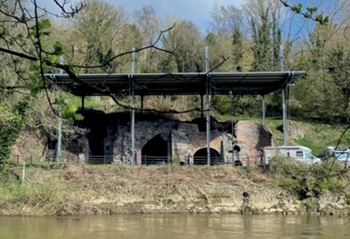Development consent order
A Development Consent Order (DCO) is the means of obtaining permission for developments categorised as Nationally Significant Infrastructure Projects (NSIP). This includes energy, transport, water and waste projects.
Development Consent Orders are required for designated Nationally Significant Infrastructure Projects rather than other consents such as planning permission, listed building consent and compulsory purchase orders.
Introduced by the Planning Act in 2008, Development Consent Orders were intended to simplify and speed up the process of obtaining planning permission for certain types of project, designated as Nationally Significant Infrastructure Projects. Applications were originally decided by the Infrastructure Planning Commission, and independent body, however, when the Localism Act was introduced in 2011, this role was handed over to the Planning Inspectorate and the Secretary of State.
A long consultation process has been undertaken by the Department for Communities and Local Government about the nature of Development Consent Orders, and plans announced to extend the list of Nationally Significant Infrastructure Projects to include developments such as stadia, conference and exhibition centres, major office, warehousing, manufacturing, research and development facilities. Deep-mined coal is included, but the extraction of peat, oil, and gas are excluded as are retail and housing proposals.
In November 2013, a policy statement by the Department for Communities and Local Government suggested that:
“Although size in itself will not be the determining factor in whether a project is nationally significant or not, the Secretary of State would not normally expect to receive requests for directions in relation to projects that are not of a substantial size.
“For example, the Secretary of State would not normally expect to receive requests for construction projects where the gross internal floor space to be created by the project is less than 40,000 square meters; for leisure, tourism and sports facilities where the area to be developed is less than 100 hectares; or for sports stadia where the seating capacity is less than 40,000 seats.
“For minerals projects, the Secretary of State would not normally expect to receive requests for projects unless they involve the extraction of a strategically important industrial mineral, or extraction of a mineral on a significant scale, for example where the surface or underground area was over 150 hectares.”
The Government response to the consultation on the review of the Nationally Significant Infrastructure Planning Regime was published in April 2014 and is available on the gov.uk website.
On 28 October 2015, the government published a Nationally significant infrastructure projects and housing briefing note providing further information on the nationally significant infrastructure planning clause of the Housing and Planning Bill 2015. Clause 107 allows an element of housing to be consented when development consent is granted for a nationally significant infrastructure project.
On 16 December 2015, the Department for Communities and Local Government issued new guidance on the procedures for making a change to a Development Consent Order for nationally significant infrastructure projects, covering the 2 types of change that may be made to a Development Consent Order (non-material or material) and the procedures for making such changes.
In March 2017, the government published guidance confirming that will major infrastructure projects that include up to 500 homes will be considered to be Nationally Significant Infrastructure Projects.
On 7 July 2021, Minister of State for Housing, Christopher Pincher MP, launched an operational review of the NSIP regime. Ref https://www.gov.uk/government/news/planning-act-2008-operational-review-of-the-nsip-regime
In October 2021, the government launched a survey seeking input to possible reform of the NSIP regime. For more information see: National Infrastructure Planning Reform Programme.
In February 2023 the Government published the policy paper "Nationally Significant Infrastructure: action plan for reforms to the planning process" calling for a overhaul of the existing system.
[edit] Related articles on Designing Buildings
- Breaking Barriers in Infrastructure - perspectives from the profession
- Crossrail 2.
- Engineers make policy decisions a reality.
- Environmental Impact Assessment.
- Environmental Statement.
- Generation nuclear.
- Instrumentation operated in the national interest.
- Is a bridge needed between Scotland and Northern Ireland?
- Listed building consent.
- Localism Act.
- Major Projects Authority.
- National Infrastructure Plan.
- National Infrastructure Planning Reform Programme.
- Nationally Significant Infrastructure Project initiatives reach milestone.
- Permission for mining or working of minerals.
- Planning Act 2008.
- Planning permission.
- Safeguarding land.
- Wind farm.
[edit] External references
Featured articles and news
Art of Building CIOB photographic competition public vote
The last week to vote for a winner until 10 January 2025.
The future of the Grenfell Tower site
Principles, promises, recommendations and a decision expected in February 2025.
20 years of the Chartered Environmentalist
If not now, when?
Journeys in Industrious England
Thomas Baskerville’s expeditions in the 1600s.
Top 25 Building Safety Wiki articles of 2024
Take a look what most people have been reading about.
Life and death at Highgate Cemetery
Balancing burials and tourism.
The 25 most read articles on DB for 2024
Design portion to procurement route and all between.
The act of preservation may sometimes be futile.
Twas the site before Christmas...
A rhyme for the industry and a thankyou to our supporters.
Plumbing and heating systems in schools
New apprentice pay rates coming into effect in the new year
Addressing the impact of recent national minimum wage changes.
EBSSA support for the new industry competence structure
The Engineering and Building Services Skills Authority, in working group 2.
Notes from BSRIA Sustainable Futures briefing
From carbon down to the all important customer: Redefining Retrofit for Net Zero Living.
Principal Designer: A New Opportunity for Architects
ACA launches a Principal Designer Register for architects.




















